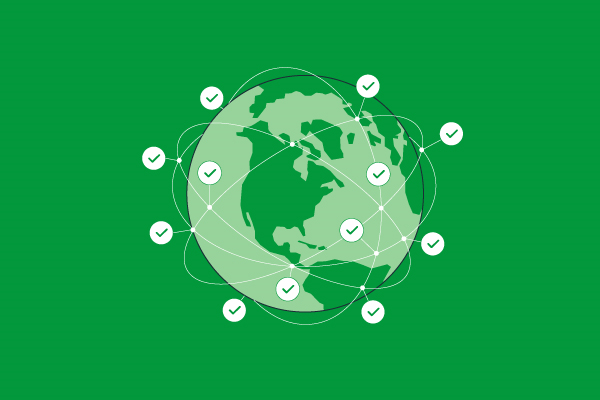- What are credit card merchant services?
- What’s a credit card payment gateway?
- What is a credit card payment processor?
- What is the difference between a credit card payment processor and a gateway?
- Payment gateways and security standards
- How to choose a credit card payment gateway & processor for your business?
- Conclusion
If you’re a business owner, you’ve probably heard of the term “merchant services.” But what exactly is it? What does it mean to be a merchant? And how can you choose the right merchant service provider for your business?
In this post, we’ll discuss what credit card processing is and how it works. We’ll also talk about the two most common types of payment gateways used by businesses: E-commerce merchants and traditional brick-and-mortar retailers. We’ll also take a look at some of the different security standards that are in place for credit card transactions so that you know what criteria your chosen gateway should meet before choosing one over another.
Finally, we’ll explain why choosing a credit card payment gateway & processor is so important for your business and why it’s worth doing now before things get even more complicated.
What are credit card merchant services?
Credit card merchant services are a way of accepting credit cards online, in person, or over the phone. They’re also known as “credit card processors” or “card acceptance.”
A multi-step procedure required to correctly finalize payments made with a credit card is referred to as credit card processing. Transactions can now be carried out almost anywhere in the modern digital world, whether in person, online, over the phone, or by mail. There are several parties involved in credit card processing. This covers the buyer, retailer, payment processor, card network, issuing bank, and acquiring bank. It also includes the consumer and merchant.
What’s a credit card payment gateway?
The system that reads and transmits payment information from a client to a merchant’s bank account is known as a payment gateway. Data collection, making sure funds are available, and getting a merchant reimbursed are its responsibilities. An online payment gateway is a piece of cloud-based software that links a customer and a retailer, when a cardholder uses their card to make a purchase in person.
What is a credit card payment processor?
By serving as the middleman between the retailer and the relevant financial institutions, a payment processor controls the credit card transaction process. A processor works to guarantee that merchants are paid on schedule by enabling the flow of payments and can authorize credit card transactions. Some payment processing providers include customer support, security solutions, help with PCI compliance, equipment for card acceptance, and other value-added payment processing services.
A payment gateway, which is distinct from a payment processor, is a secure software program that approves credit card or direct payment processing for online purchases and other card-not-present transactions.
What is the difference between a credit card payment processor and a gateway?
The technology that delivers payment information from the point of entry to the payment processor is known as a payment gateway. Additionally, it informs the merchant or the customer of the permission or denial.
Although they can also be used to receive payments through a credit card reader, software interface, payment gateways are frequently utilized for eCommerce transactions.
Whereas payment processor is in charge of communicating transaction information to and from the acquiring bank of the merchant and the card-issuing bank of the client.
All card-based transactions, whether they take place online, in person, or through a mobile app, need the use of payment processors.
Payment gateways and security standards
Payment gateways are the first line of defense against fraudulent transactions. They’re responsible for the security and processing of all credit card transactions, which means they must be PCI compliant (Payment Card Industry Data Security Standard).
Once you’ve chosen a payment gateway, it’s important to ensure that it has been tested and certified by a reputable third-party organization. It should also have the ability to process transactions from any device—including mobile phones, tablets, computers, and other types of devices.


How to choose a credit card payment gateway & processor for your business?
When choosing a credit card merchant service, it’s important to look for a gateway that offers the features you need. The most common features include:
- Maximum transaction amount (this will tell you how much money can be processed)
- Transaction fees (how much will be paid by your customers if they make a purchase)
Looking for a gateway that has an excellent reputation can help with customer satisfaction and retention rates. Look at how long they’ve been in business, what kind of reviews they have received from past clients, and whether or not there are any negative ones as well—it’s always good practice to check around before making any decisions about where your business should spend its money!
Nonetheless, transparency in pricing, flexibility in accepting payments, and security are important considerations when selecting a credit card processor and credit card payment gateway.
If you are in search of such a company, oceanpayment can be a great choice.
Oceanpayment is an online payment platform that enables merchants to accept credit and debit cards from all over the world.
The company was founded by a team of entrepreneurs who had come together to create a global payment platform that would enable merchants to accept credit and debit cards from any country. The founders believed that there was no other company on the market that offered this capability, so they set out to build it themselves.
To date, Oceanpayment has processed over two billion transactions for businesses in more than 100 countries. The platform’s mission is to make it as easy as possible for businesses around the world to accept payments online.
Conclusion:
Choosing a credit card payment gateway & credit card payment processor for your business can be a stressful process, especially if you’re new to the world of eCommerce. But don’t worry—we’re here to help! We know that there are many payment gateways and processors available on the market, so it can be hard to find which one is best for your business. That’s why we took some time researching each company before suggesting Oceanpayment as your preferred option.
Frequently Asked Questions:
A credit card payment gateway links merchant accounts with payment processors when clients pay with a credit card by sending credit card data between the bank that issued the credit card and the bank account for your company.
●Approval for payment. Payment is always the initial step in a credit card transaction.
●Authentication of payments. When the payment request is received, the issuing bank checks to see if the cardholder has enough money in their account to cover the purchase.
●Clearing.
The steps you can take on a transaction up until the close debtor date are described by the transaction lifecycle. A transaction is locked and cannot be changed once the close debtor date has passed for that transaction.
To provide you a window of time to fix errors before the transaction is locked and to maintain long-term report stability, the debtor closed date is delayed from real-time. The debtor closing date is advanced by your accounts team once a month or at a frequency that works for your business procedures.
How online credit card payment processor operates is as follows:
The buyer selects an item and then takes out their card. A transaction is submitted by the merchant. The transaction is sent to the processor in a secure manner by the credit card payment gateway. The transaction is verified and approved by the processor.
Three Different Payment Gateway Types
1. Hosted payment gateways.
2. Self-hosted payment gateways.
3. API-hosted payment gateways.
A credit card payment processor facilitates the transaction, whereas a payment gateway is a technology that lets you and your customers know if a transaction has been approved or declined.












Comments are closed.